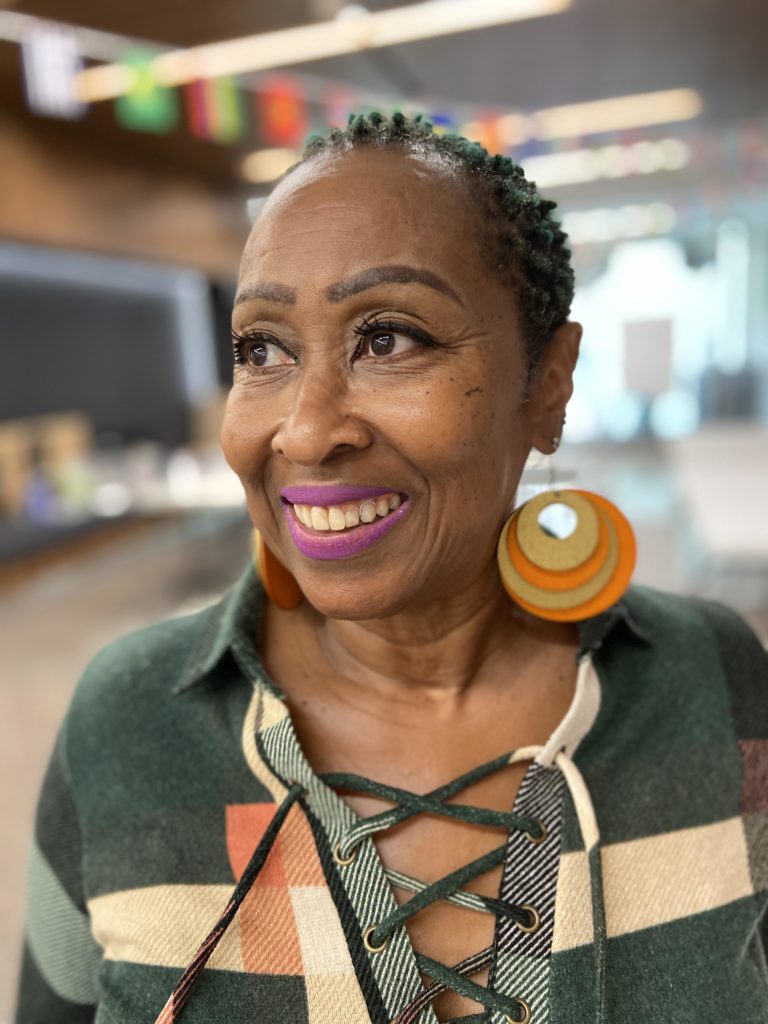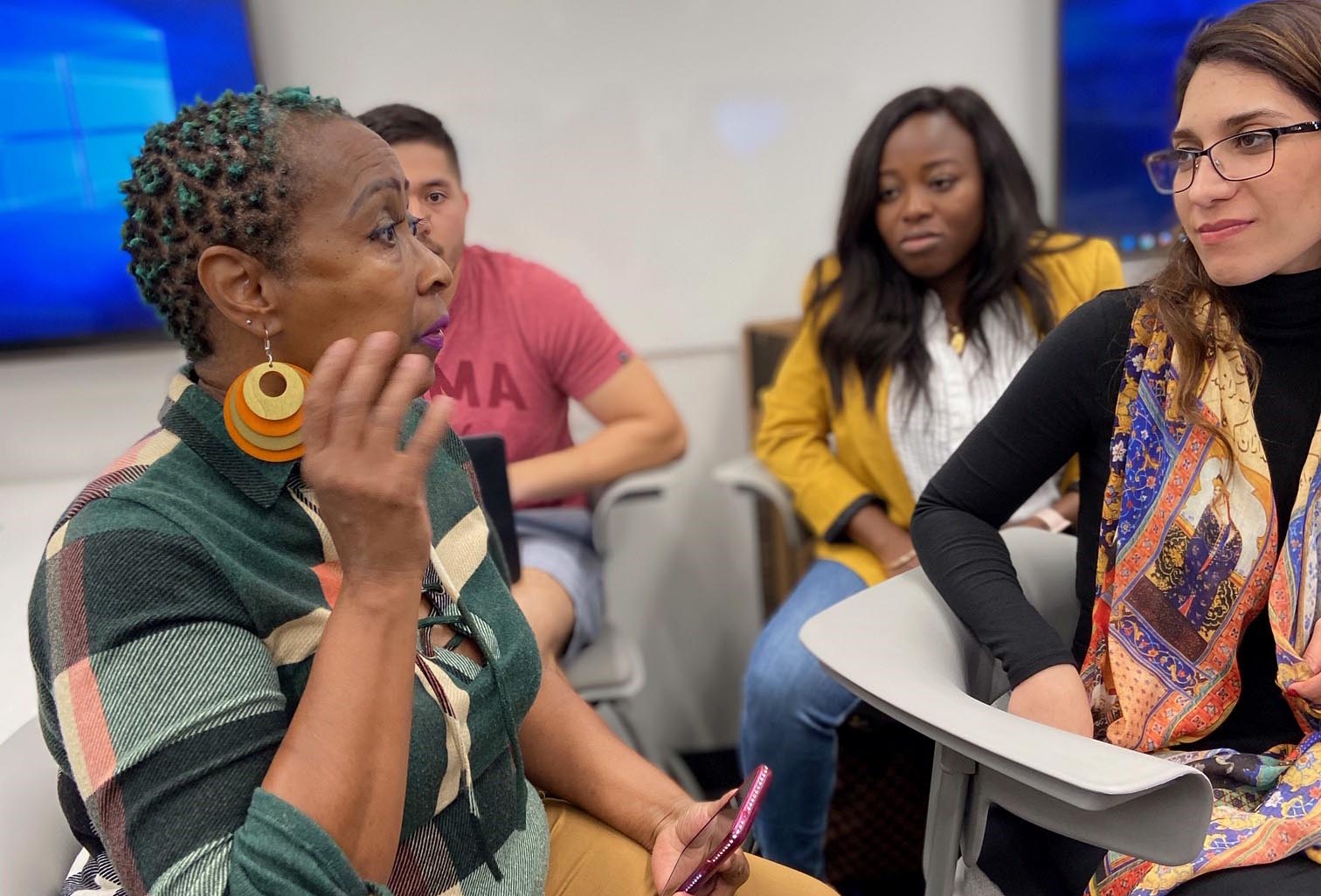Ending the HIV epidemic using community pharmacists
By Jan Jarvis
Shelia Neal keeps a list of her prescriptions on her cell phone and puts her medications in a pill organizer.
“If I miss a dose, I might not die today, but I’m not going to feel good,” she said. “At the end of the day, I just have to take my medicine.”
The mother and grandmother is dedicated to staying healthy and having a good quality of life. She is determined to live well with HIV.
Both Neal and her pharmacist know failing to take HIV medicines correctly results in immune system failure and eventually death. To help more persons with HIV live like Neal, a clinical trial is now underway through the UNT System School of Pharmacy. It is designed to integrate pharmacists with primary care providers to deliver patient-centered care.
“The clinical trial is the only one in the world like this,” said Patrick Clay, PharmD, Professor of Pharmacotherapy. “Its simplicity is the key.”
Those with HIV are asked to meet with a community pharmacist every 90 days. The two have a private conversation about their medicines and their health and how to marry those two for the best outcome.
Evidence from a previous project suggests it is a successful approach.
From 2013 to 2017, Dr. Clay led a nationwide, multi-million dollar demonstration funded by the Centers for Disease Control and Prevention and Walgreens that formally linked pharmacists with persons with HIV treatment plans. Patients had regular one-on-one conversations with pharmacists. Two years later, success was realized. More patients stayed in care, took their medicine and kept HIV in check.
“The project showed this simplistic approach could make a difference,” Dr. Clay said. “What was really meaningful was the group that benefited the most was African-Americans.”
While the prior project suggested this approach worked, stronger evidence was needed. Dr. Clay and his team are now conducting a formal clinical trial in the Fort Worth region to develop evidence for not only HIV but also diabetes and high blood pressure.
“The trial of HIV, diabetes and high blood pressure independently and collectively occur disproportionately in African Americans,” Dr. Clay said. “We are tackling them all at once.”
The current trial asks patients to meet privately with specially trained pharmacists every 90 days for two years. These pharmacists work closely with the patients’ physicians and other healthcare team members.
“The pharmacist can be a proactive member of the team, not just the person filling prescriptions,” Dr. Clay said. “And while doing so, persons with HIV will have better outcomes.”
Neal is a stronger believer in this approach. Those with HIV can always benefit from having more support.
“It takes a village,” she said.
Research reported in this publication was supported by the National Institute On Minority Health And Health Disparities of the National Institutes of Health under Award Number U54MD006882. The content is solely the responsibility of the authors and does not necessarily represent the official views of the National Institutes of Health.







Social media